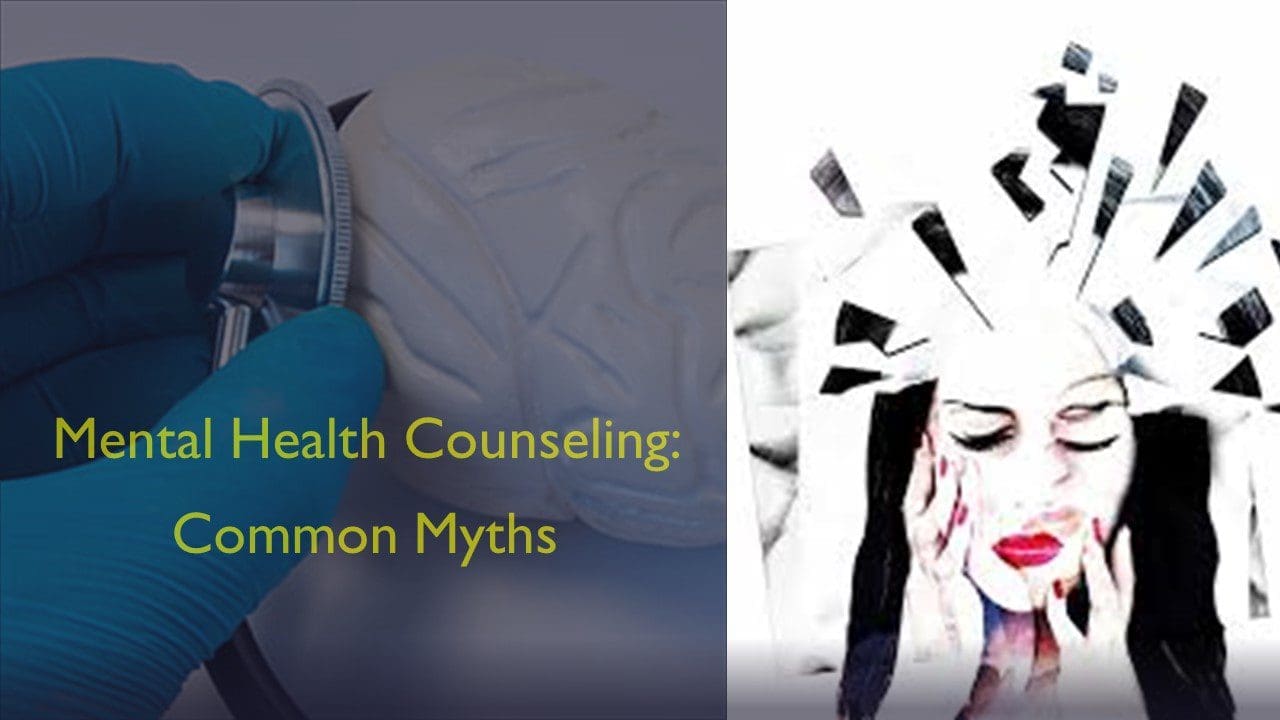
By investigating the person’s past (especially childhood), the client can begin to understand why they think and act as they do and work towards dealing more effectively with emotional distress, and any future problems.
There are different types of psychotherapy, and things have changed a lot since the days of Freud’s psychoanalysis! Essentially there are four main types of psychotherapy psychoanalysis, psychodynamic, behavioral, and humanistic.
The purpose of this article is not to describe psychotherapy in great depth; it is to address some of the common myths which surround mental health counseling.
Myth 1: Once I complete a counseling program, I won’t need to come back.
This is an especially dangerous belief considering that most emotional disorders are episodic, or recurring. Each individual is different, and life is always in a state of flux. For many, it may be helpful to return to psychotherapy for a time to learn new coping skills.
Myth 2: Mental health counseling is for “Crazies”. Psychotherapy is only for those who have severe mental problems.
This is not true because most often, the people with the worst mental problems are the most resistant to therapy. People with even minor issues like confusion, minor depression or sadness, or any other interest in better understanding their mind and its intricacies can benefit from mental health counseling.
Myth 3: Counseling isn’t necessary if I am on medication for my disorder.
If you have a chemical imbalance, the chances are good that you have suffered from your disorder from birth. When we are children, we don’t have the words to describe what is wrong with us. We don’t know how to tell people that we are depressed. So we grow up thinking that we are different from everyone else. We believe that life is supposed to be sad or boring or tragic.
While medication may alleviate some of the physical and emotional symptoms of your disorder, psychotherapy will help you to see life in a new and exciting way. It will also help you discover the real personality hiding behind your illness. You may find that the person underneath is a fun-loving, spontaneous adventurer!
Myth 4: Mental Health Counseling is all about being emotional and personal
One should always keep in mind that if they enter the journey of therapy with an honest and committed attitude, they may find out certain aspects of their personality to be unpleasant. This should not hinder you from continuing your treatment but you should also learn from these experiences so that you can better understand how your life has taken its present form.
Being honest and truthful not only with your therapist but with yourself is also vital. You cannot really go to therapy and deny part of your personality of you expect to benefit anything from your sessions.
Myth 5: Counselors only care about my past.
Actually, many counselors are just as interested in your future as they are in your past! Some therapists, called life coaches, encourage you to leave the past behind and focus on your goals and hopes for the future. The best therapists are those who look to your past for insight, but help you build skills that will make an important contribution to your future happiness.
Myth 6: Mental Health Counseling is too expensive.
Many therapists operate on a sliding scale. This means that they only charge according to your ability to pay. Other therapists are willing to work pro bono for a short period. As a last resort, it is helpful to check in your community to see if there are any non-profit counseling centers in your area. With online mental health counseling, the cost can be very low. Check BetterHelp to find the right counselor for you.
Myth 7: Visiting a mental health counselor will affect my ability to get a job, apply for a loan, etc.
Not true! Thanks to laws regulating medical confidentiality, this is no longer a fear that should hold anyone back! Even the social stigma of psychotherapy is receding as time passes, and emotional disorders are more readily diagnosed.
Myth 8: If I’m paying all this money, my counselor ought to be able to fix me!
Yes, and no. You should indeed see significant progress towards your goals. But psychotherapy is a collaboration. It requires your enthusiastic participation and dedication. Some therapists even need that you do “homework!” Groan if you must, but the more work you do on your own, the faster you will see changes in yourself.
Remember that seeking help is a sign of strength and that we all deserve happiness. If you think that mental health counseling and psychotherapy might be helpful to you, give it a go, and take no notice of any myths!

1 Trackback / Pingback